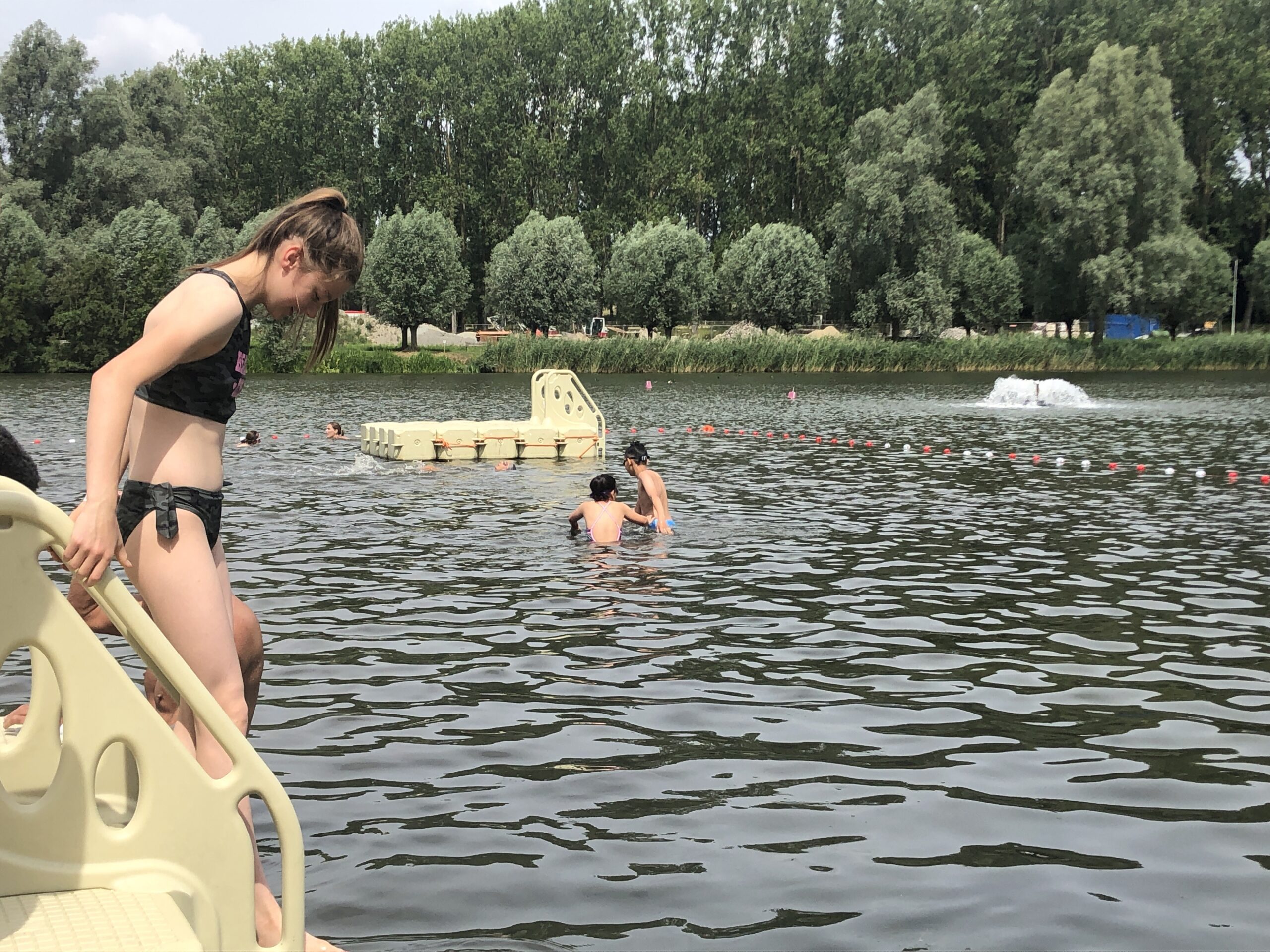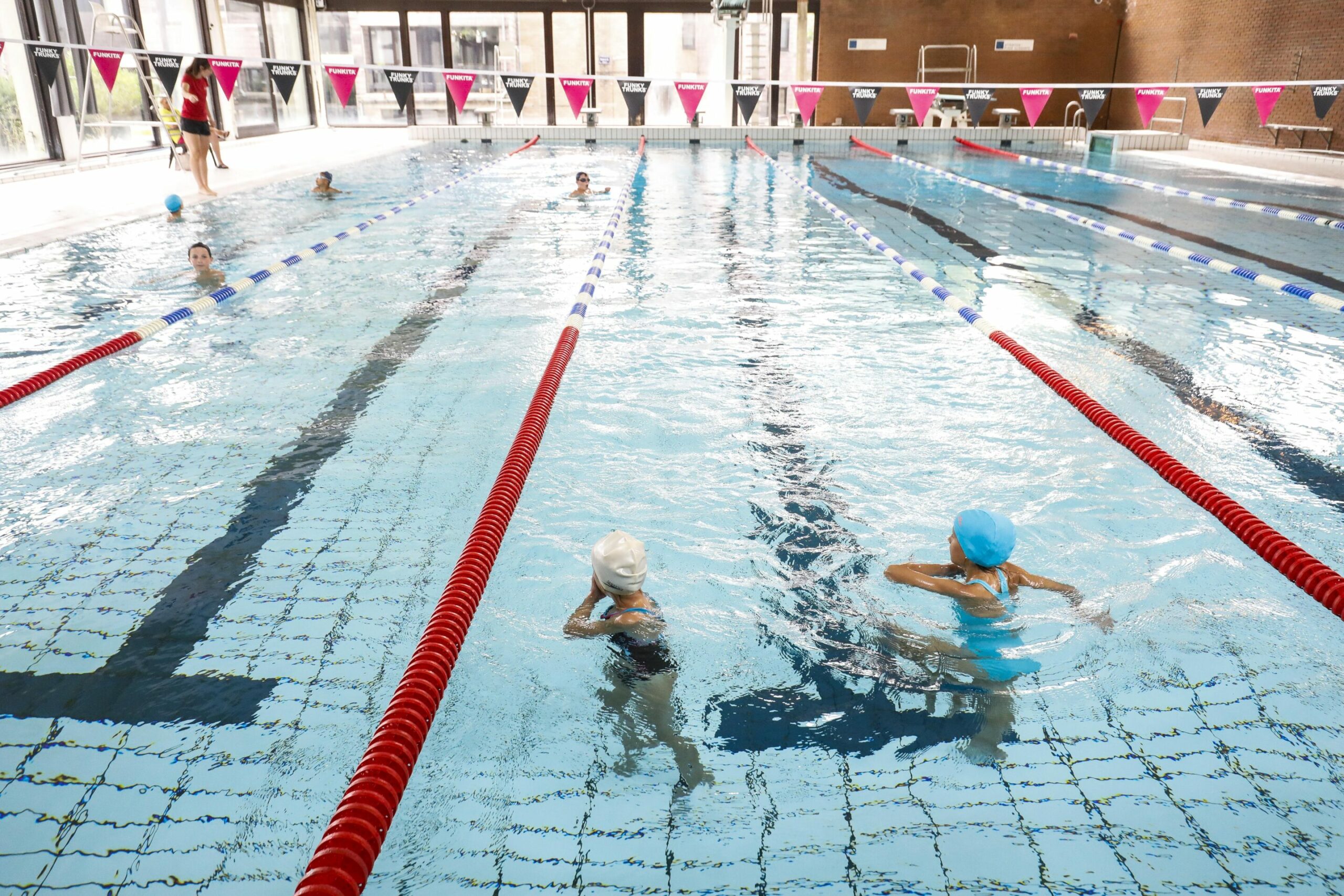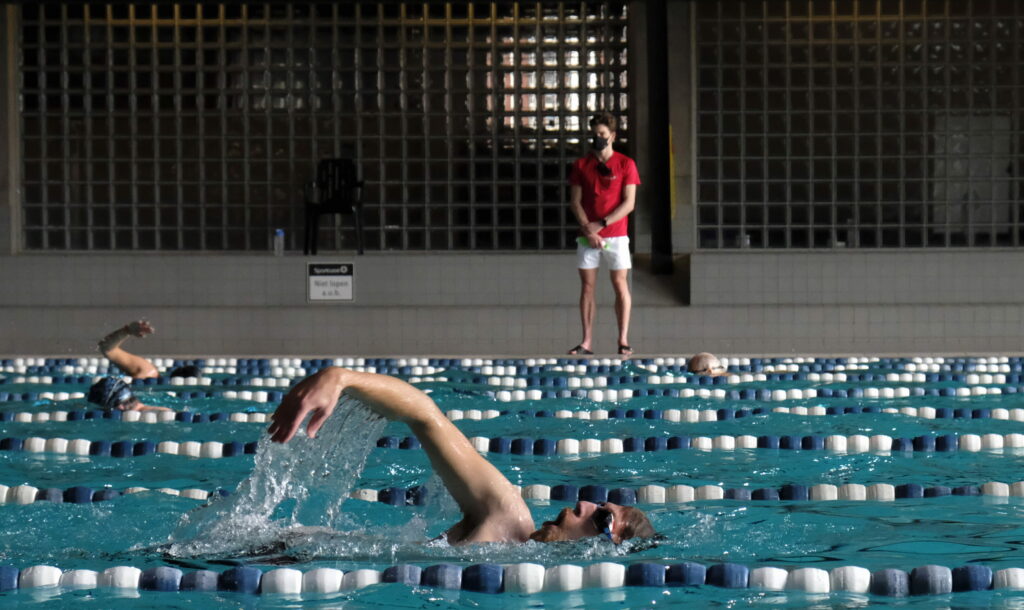Recent incidents of one teen drowning and another being left in a coma have raised concerns about the standard of swimming skills among young people in Belgium.
This week, a 16-year-old drowned while swimming at the beach in Ostend. That same day, a 19-year-old was left in a coma after getting into trouble in Blaarmeersen Lake in Ghent.
This time last year similar worries were also voiced, as statistics revealed that drowning was the primary cause of accidental death in Belgium for children under the age of six.
There are already some initiatives in place to get young people swimming, including swimming lessons offered through schools, and one project enabling Brussels children and teenagers to feel more comfortable in open water.
However, time constraints with school schedules and limited access to swimming pools mean that the swimming skills of young people in the country are suffering.

Credit: Belga / Nils Quintelier
Speaking to VRT, Tine Sleurs, lecturer in physical education at the University of Applied Sciences (UCLL) in Leuven and of Swimming Education Flanders, warned that there is a risk of a "generation who cannot swim," if the situation continues.
Sleurs said that parents and teachers are quickly satisfied with their child's swimming skills and stop lessons, meaning that children do not maintain their technique. When they become teenagers, she says spending time at the swimming pool is not popular, and swimming skills therefore decline further.
"Especially in open water, if you can't touch the bottom or you're overcome by the cold water, you'll quickly get into trouble if you don't have sufficient swimming skills," she said.
Belgium has seen a decline in the number of swimming pools in recent years, meaning that waiting lists for swimming schools are getting longer. In Wallonia, nearly half of swimming pools are closed or unavailable to the public, and a recent report by the UCLL found that more than a quarter of primary schools have cancelled swimming lessons in the past year due to a lack of pools.

Credit: Belga / Thierry Roge
'Fake' instructors and pricey lessons
Serge Mathonet, director of administration at the Association of Sports Establishments (which represents sports facilities in French- and German-speaking communities), has said there is a "real problem" with a shortage of pools, but also with "fake" swimming instructors.
"There are numerous 'fake' swimming instructors, as the profession is neither regulated nor protected. Anyone can call themselves a swimming instructor, but not everyone knows how to teach swimming properly," he told La Dernière Heure this week.
With high inflation and a cost of living crisis in recent years, children and teenagers in Belgium may also be missing out on vital swimming lessons because they are simply too expensive.
A survey of over 500 schools in Flanders found that 28% of them organised fewer swimming lessons in the past year than before, partly due to difficulties making the lessons time efficient, but also because they are struggling with the increased cost of school swimming.

